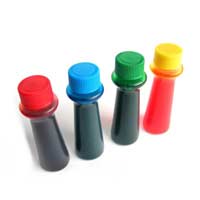The FSA's Recommendations For 2009

In April 2008, following a study of the findings of a research project by Southampton University into the possible effects of certain colour additives on children’s behaviour which was carried out in 2007, the Food Standards Agency (FSA) recommended that UK food manufacturers should be encouraged to voluntarily remove six colour additives from their manufacturing process by 2009.
Colour Additives Involved And The Reasons For Recommending Their Removal
The colour additives which the FSA would like to see removed from food and drink manufacture here in the UK are:- Quinoline yellow (E104)
- Sunset Yellow (E110)
- Allura Red (E129)
- Tartrazine (E102)
- Carmoisine (E122)
- Ponceau 4R (E124)
The reasons cited by the FSA for their request in asking companies to voluntarily remove these additives are that they are all synthetic dyes which do not exist naturally and whose only purpose is to give colour to certain types of food and drink but, other than that, they have no intrinsic value.
The research has also indicated that if parents cut out these artificial colours from their children’s diets, there may be some beneficial effects on the behaviour of children who are susceptible to hyperactivity. However, the FSA were keen to point out that there can be many factors relating to a child’s hyperactivity levels which are not necessarily associated with diet such as genetic factors, environmental considerations, general upbringing and whether a child was born premature or not. It also emphasised the fact that these additives have all been passed and certified as safe in the past but they just wanted to make the point that safety guidelines which were published 20 years ago should be reviewed again in the wake of these findings and, therefore, the European Food Safety Authority (EFSA) was asked by the EC to re-evaluate all additives which are used in food and drink production which they have done.


Re: Dangers and Side Effects of E Numbers
Is this the tip of the iceberg? Can't help thinking we all being slowly poisoned by convenience food. Convenient for…
Re: E200 - E299 Preservatives
Hallo I need advise on what preservetives and ant foaming agents to use for lemon juice. Also reconmondations on how much powders to…
Re: Top E Numbers to Avoid
Since Brexit, I have been adding a few extra E numbers in my products and my sales have boomed! I now sell the tastiest burger in town. E…
Re: E Numbers Not Suitable for a Halal Diet
Is E202 is halal?
Re: Does E631 Use Extracted Pig's Fat or Sardine Oil?
400
Re: E Numbers Not Suitable for a Halal Diet
E140 is a plant product, not derived from meat at all. Please check your facts.
Re: Top E Numbers to Avoid
I was prescribed amitriptyline for anxiety and got on well with the first box of tablets. After starting the second box I began to feel…
Re: E400 - E499 Thickeners, Stabilisers and Emulsifiers
All thickener agent name All emulsifier agents name Cemical use Food use
Re: Top E Numbers to Avoid
You say that E133 is banned in Germany, yet my GP has prescribed Fultium-D/Colecalciferol 800 out capsules with E133 and the Manufacturer…
Re: Does E631 Use Extracted Pig's Fat or Sardine Oil?
In India, there is a law already existing, that any food products having any non-vegetarian ingredients…